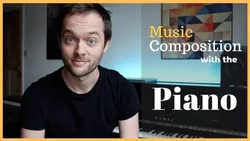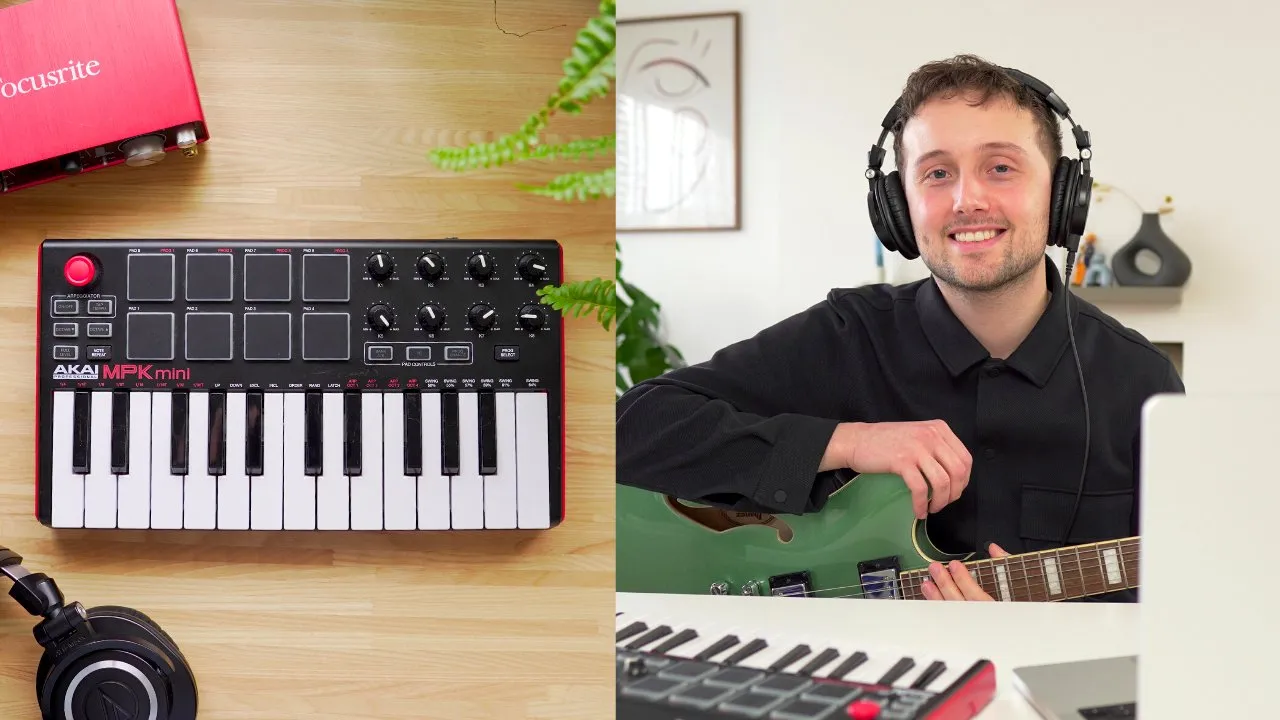
Music Composition with the Piano 
This course provides an introduction to music composition and songwriting with the piano. It is designed to help both beginners and intermediate players unlock their creative potential and generate material with ease. Through four core elements, participants will learn how to compose and write songs with the piano. ▼
ADVERTISEMENT
Course Feature
![]() Cost:
Cost:
Free Trial
![]() Provider:
Provider:
Skillshare
![]() Certificate:
Certificate:
Paid Certification
![]() Language:
Language:
English
![]() Start Date:
Start Date:
On-Demand
Course Overview
❗The content presented here is sourced directly from Skillshare platform. For comprehensive course details, including enrollment information, simply click on the 'Go to class' link on our website.
Updated in [March 06th, 2023]
Learners can learn a variety of skills from this course, such as piano technique, music theory, composition, and songwriting. They will be able to express their musical ideas fluently at the keyboard and DAW, and use extended music theory without reading a line of music. They will also gain an understanding of harmony, enabling them to compose different styles of music, such as filmic, classical, jazz, and mainstream. Additionally, learners will be able to build interesting chord progressions. All of these skills will help learners to unleash their composing and songwriting potential.
[Applications]
Upon completion of this course, students can apply their knowledge to create their own compositions and songs. They can use their understanding of piano technique, theory, and arrangement to create music in different styles. They can also use their knowledge of fundamental and advanced harmony and music theory to create interesting chord progressions. Additionally, they can use the compositional techniques and strategies they have learned to unblock the writing process and generate material at the piano with ease.
[Career Paths]
1. Music Composer: Music composers create original music for a variety of media, including film, television, video games, and commercials. They use their knowledge of music theory and composition to create unique and engaging pieces of music. As technology advances, the demand for music composers is increasing, and the field is becoming more competitive.
2. Music Producer: Music producers are responsible for overseeing the production of music recordings. They work with artists to create the best possible sound for their recordings, and they are also responsible for mixing and mastering the recordings. Music producers must have a strong understanding of music theory and production techniques in order to create the best possible sound.
3. Music Arranger: Music arrangers are responsible for arranging existing pieces of music for different instruments and ensembles. They must have a strong understanding of music theory and composition in order to create effective arrangements. Music arrangers must also be able to work with different types of musicians and ensembles in order to create the best possible arrangements.
4. Music Educator: Music educators are responsible for teaching music theory, composition, and performance to students of all ages. They must have a strong understanding of music theory and composition in order to effectively teach their students. Music educators must also be able to work with different types of students in order to create engaging and effective lessons.
[Education Paths]
1. Bachelor of Music Composition: This degree program focuses on the fundamentals of music composition, including music theory, harmony, and arranging. Students learn to create original compositions for various media, such as film, television, and video games. This degree is becoming increasingly popular as the demand for composers in the entertainment industry continues to grow.
2. Master of Music Composition: This degree program builds on the fundamentals of music composition, and focuses on more advanced topics such as orchestration, counterpoint, and music technology. Students learn to create complex compositions for various media, and gain the skills necessary to become a professional composer.
3. Doctor of Musical Arts in Composition: This degree program is designed for those who wish to pursue a career in music composition. Students learn to create complex compositions for various media, and gain the skills necessary to become a professional composer. This degree is becoming increasingly popular as the demand for composers in the entertainment industry continues to grow.
4. Music Technology: This degree program focuses on the use of technology in music composition. Students learn to use digital audio workstations, synthesizers, and other music technology tools to create original compositions. This degree is becoming increasingly popular as the demand for composers in the entertainment industry continues to grow.
Pros & Cons

Beststructured course

Clear and accessible

Practical exercises

Encourages exploration and creativity

Ideal for intermediate and advanced players

Gives order to inner chaos

Improved knowledge of the subject

Lots of stuff to work on

Clear path to follow

Content exceeds beginner's ability
Course Provider

Provider Skillshare's Stats at AZClass
Discussion and Reviews
0.0 (Based on 0 reviews)
Explore Similar Online Courses

Introduction to Elixir Programming Tutorial

Calculus

Python for Informatics: Exploring Information

Social Network Analysis

Introduction to Systematic Review and Meta-Analysis

The Analytics Edge

DCO042 - Python For Informatics

Causal Diagrams: Draw Your Assumptions Before Your Conclusions

Whole genome sequencing of bacterial genomes - tools and applications

Orchestral Music Composition & Music Theory for Video Games

Music Theory for Songwriters: From Beginner to Producer

Music Theory Level 1: Part Five
 Related Categories
Related Categories
 Popular Providers
Popular Providers
Quiz
 Submitted Sucessfully
Submitted Sucessfully
1. What are the four core elements of the course?
2. What will you learn in the course?
3. What type of music can you compose in the course?
4. What is the main focus of the course?
Correct Answer: Piano technique, theory & arrangement.


Start your review of Music Composition with the Piano